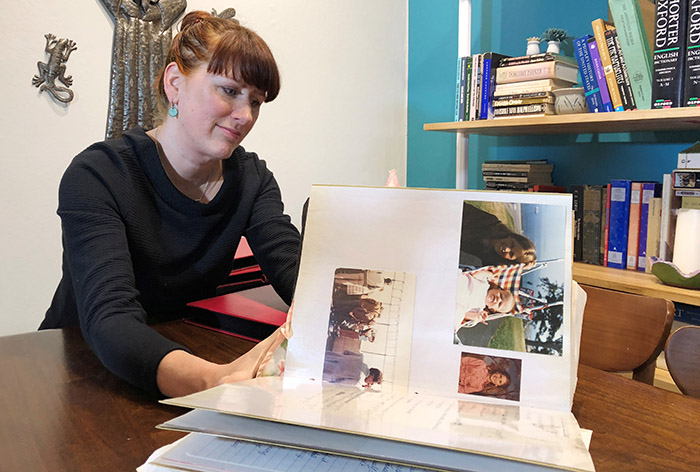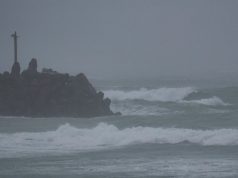
(A Reuters exclusive) An American cameraman and filmmaker who died in December in a jail in the Philippines suffered blunt-force trauma, and his body had markings inconsistent with the official account by Philippine authorities that he hanged himself, a private U.S. pathologist said.
The findings raised new questions about the death of Jesse Phinney on the Philippine island of Cebu. Law enforcement officials there said they found the 42-year-old Boston native hanging in the bathroom of a detention facility where he was being held on Dec. 5, and declared it a suicide.
Phinney’s family, suspecting foul play and believing he was incapable of the alleged crimes that prompted his arrest, hired a Providence, Rhode Island-based forensic pathologist and a private investigations company to look into his death.
The pathologist, Dr. Elizabeth Laposata, told Reuters in a recent interview that an autopsy she performed in the United States found deep bruises on Phinney’s body, caused within three or four hours of his death, and an unexplained mark on his neck. She said she believed the evidence indicated that Phinney did not take his own life.
“No medical examiner would be comfortable saying this is a suicidal hanging because there are all these unexplained things,” said Laposata, a former chief medical examiner for the state of Rhode Island who is now in private practice and regularly testifies at murder trials.
The day before he was found dead, Phinney had been arrested on suspicion of violating human trafficking and child abuse laws, according to a report by the National Bureau of Investigation (NBI) seen by Reuters. The NBI is the Philippine equivalent of the U.S. Federal Bureau of Investigation.
According to the report, the NBI began tracking Phinney after a December 2016 complaint by Cebu Vice Governor Agnes Magpale, who also co-chairs a women’s protection group. The report included affidavits from a mother and child who said Phinney sometimes had minors sleep at his home, took pictures of them, and gave them gifts.
Magpale told Reuters in a text message that she referred Phinney to the NBI, which she said is standard procedure when her office is presented with allegations of human trafficking or other crimes.
“I was told NBI did surveillance work for some time. When NBI took over, they filed the case,” she said.
The NBI’s report said Phinney was found hanging by a belt and that an autopsy commissioned by the NBI determined the cause of death was “asphyxia by hanging.” The report was sent to the U.S. embassy in Manila by the NBI’s regional director in Cebu, Patricio Bernales.
“I thought this case was closed, but the local police is now conducting an investigation and the human rights groups here are also asking a lot of questions,” Bernales told Reuters, referring questions about the case to NBI headquarters in Manila. Bernales did not name the human rights groups.
Royina Garma, a police superintendent in charge of criminal investigations in Cebu, told Reuters that his superiors in Manila ordered his office to probe Phinney’s death. He said they had sought all documents related to the case from the NBI in Cebu but had yet to receive them.
Ferdinand Lavin, an NBI spokesman in Manila, said his office did not have any comment and that he expected the bureau’s office in Cebu to respond to any questions.
Phinney’s death occurred against the backdrop of Philippines President Rodrigo Duterte’s nearly two-year-old “war on drugs,” which critics say has led to the deaths of thousands of small-time drug users and dealers in execution-style killings by law enforcement.

While acknowledging she had no proof, Phinney’s sister, Molly Phinney Baskette, told Reuters in a TV interview that she feared that a culture of “widespread extrajudicial killing” was a contributing factor in his death.
Asked about this assertion, Assistant Presidential Communications Secretary Rachel Rodulfo referred Reuters to “the appropriate authorities” and said she trusted that “proper procedures would be observed in the conduct of the probe.”
‘Happiest place on earth’
Phinney was a cinematographer on more than two dozen documentaries, TV series and reality shows on channels including Discovery and History, according to the IMDb movie and TV information website. Most recently, he worked on National Geographic’s 2014-2016 series “Life Below Zero.”
He had been winding down his TV career and was looking to start a new one building off-the-grid housing for low-income people. He had recently settled in Cebu, which he often called “the happiest place on Earth,” his sister said.
“They said it was suicide. It was not suicide,” said Phinney Baskette, a minister at a church in Berkeley, California, adding that she believed her brother was innocent.
Reuters reviewed Laposata’s death investigation report, which included a second autopsy and other tests.
Laposata said she found two ligature marks on Phinney’s neck, one more than is typical in a suicide. She also pointed to two distinct blood and fluid stains found on his T-shirt, whereas only one stain pattern would be expected in a suicidal hanging, dropped from the nose or mouth.
Laposata also pointed to a picture of Phinney when he was arrested that showed he was not wearing a belt.
The pathologist said the autopsy done in the Philippines immediately after Phinney’s death missed a hemorrhage on top of his head, as well as deep bruises on his back and shoulder consistent with blunt-force trauma.
Phinney’s family raised about $34,000 via a GoFundMe page to defray the costs for the second autopsy and to hire Insiders Corp, a Paris-based investigations firm now probing his death in the Philippines.
The company is working the case pro bono, and plans to issue a public report of its findings in the coming weeks, said spokeswoman Grace Cameron. — Reporting by Nathan Layne in New York and Manuel Mogato in Manila; editing by Jonathan Oatis








